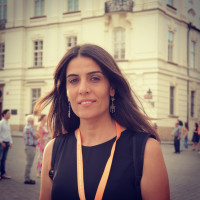Research Article
Review
Issue Reviewers


Lisans eğitimini Bilkent Üniversitesi Psikoloji bölümünde; yüksek lisans eğitimini Gelişim Psikolojisi alanında Orta Doğu Teknik Üniversitesinde; doktora eğitimini Ankara Yıldırım Beyazıt Üniversitesinde tamamlamıştır. Duygusal gelişim, çocuklarda duygu tanıma ve duygu düzenleme, ana-babalık tutumları, internet bağımlılığı, yabancılara yönelik tutumlar, önyargıları azaltma konusunda müdahale
programları, kültürlerarası psikoloji ve iletişim alanlarında çalışmalarını yürütmektedir. Çankırı Karatekin Üniversitesi Psikoloji bölümünde görev yapmaktadır.

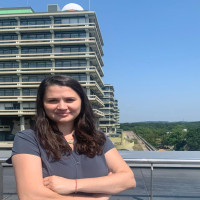
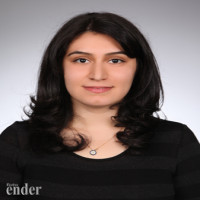
PhD, MA, MSc, BA, BA, BA

Doç. Dr. Barış Çağırkan (d. 17 Eylül 1989), İzmir Demokrasi Üniversitesi Sosyoloji Bölümü öğretim üyesidir. Lisans eğitimini Afyon Kocatepe Üniversitesi Sosyoloji Bölümü'nde tamamlamıştır. Lisansüstü çalışmalarına İngiltere’de devam eden Çağırkan, University of Southampton’da yüksek lisans eğitimini sürdürmüştür. Doktora eğitimini ise Ankara Hacı Bayram Veli Üniversitesi Lisansüstü Eğitim Enstitüsü Sosyoloji Anabilim Dalı’nda tamamlamış; “Ahıska Türklerinin sürgünü, zorunlu göç süreçleri ve Türkiye'ye dönüşleri: Ahlat örneği” başlıklı doktora teziyle doktora derecesini almıştır.
Akademik ilgi alanları göç, kadın araştırmaları, yeni medya, kimlik ve aidiyet çalışmaları etrafında şekillenmektedir. Çağırkan, çalışmalarında özellikle toplumsal yapılar, cinsiyet rolleri, milliyetçilik, sosyal medya ve bireysel/kollektif kimlik inşası arasındaki ilişkileri sosyolojik bir perspektifle ele almaktadır. Araştırmalarında hem nitel hem de nicel yöntemleri kullanmakta, özellikle refleksif tematik analiz, söylem analizi, karma yöntem yaklaşımları ve yapısal eşitlik modellemesi gibi yöntemsel araçlarla disiplinler arası çalışmalara katkı sunmaktadır.
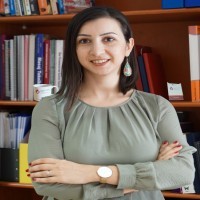
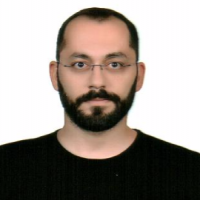

Dilek Çetin has been an Associate Professor at Süleyman Demirel University since 2017. She received a B.Sc. from the Department of Economics at the Faculty of Political Sciences at Ankara University in 1998 and received a M.Sc. degree in Economics from Akdeniz University. In 2012, she received a Ph.D. degree in Economics from Middle East Technical University. Her dissertation was on knowledge spillovers and clusters with a spatial econometric application on Organized Industrial Districts. She was awarded the Ph.D. encouragement prize from the Turkish Economic Association. Her studies focus on regional economics, and research and innovation policies. In addition to these subjects she studies trade, entrepreneurship and gender issues. Econometric methods such as spatial econometrics, microeconometrics and panel data econometrics are used in her studies. She was a post-doctoral researcher for fifteen months at the Institute for Prospective Technological Studies (IPTS) in Seville, Spain, which is one of the seven institutes of the Joint Research Centre of Directorate-General of the European Commission.

Prof. Dr. Elif Gizem UĞURLU
egugurlu@anadolu.edu.tr
Anadolu Üniversitesi İletişim Bilimleri Fakültesi Sinema Televizyon bölümünden mezun olduktan sonra bir süre TRT’de çalıştı. 1998 yılında mezun olduğu bölümde Araştırma Görevlisi olarak çalışmaya başladı. Yüksek lisans ve doktora derecelerini Anadolu Üniversitesi Sosyal Bilimler Enstitüsü’nden aldı. 18 yıl Uluslararası Eskişehir Film Festivali’nde Yürütme Kurulu Üyeliği ve Başkan Yardımcılığı görevini üstlendi. Anadolu Üniversitesi Sinema Kültürünü Geliştirme Birimi Yönetim Kurulu üyesi olarak görev yaptı. TRT, TVA ve TRT Okul için çeşitli televizyon programlarında yönetmenlik yaptı. Sinema ve Televizyon Bölüm Başkan Yardımcılığı görevini üstlendi. Bazı Açıköğretim kitaplarında bölüm yazarı ve editör olarak görev yaptı. Sobe: Çocuklara Dair Büyükler İçin Medya Okumaları ve Bir Meçhul Âleme Giderken Sinema Farklı Okumalarla Bir Film: Seni Buldum Ya! kitaplarının editörlüğünü, Çocuk Filmlerine Hak Temelli Yaklaşım kitabının yazarlığını üstlendi. Ulusal ve uluslararası toplantılarda sunulmuş bildirileri, ulusal ve uluslararası dergilerde yayınlanmış makaleleri, kitap bölümleri, kitap editörlükleri, bir kişisel video art sergisi bulunmaktadır. Uluslararası konferansların bilimsel komitelerinde başkanlıkları, hakemlikleri, çocuk hakları ve medya okuryazarlığı ile ilgili etkinliklerde atölye çalışmaları, jüri üyelikleri, danışmanlık ve eğitimleri bulunmaktadır. Sinema Kültürüne Katkı Ödülleri kapsamında “En İyi Sinema Makalesi” ödülünü, ABD’de uluslararası bir sempozyumda “En İyi Bildiri” ödülünü almıştır. Ağırlıklı akademik çalışma alanları çocuk ve medyadır. Halen Anadolu Üniversitesi Sinema ve Televizyon Bölümü’nde çalışmakta, Çocuk ve İletişim, Yaşlı ile İletişim, Etkili İletişim Becerileri, Etkileşimli Medya ve Toplum, Film Eleştiri, Film Kuramları gibi ön lisans, lisans ve lisans üstü düzeyde dersler vermektedir.
.
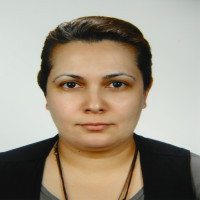
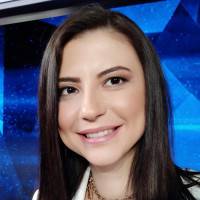

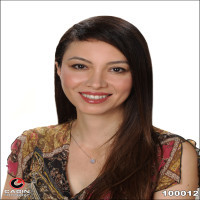
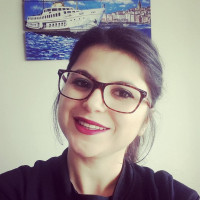
Anadolu Üniversitesi İletişim Bilimleri Fakültesi, Halkla İlişkiler ve Reklamcılık Bölümü’ndeki lisans eğitimini 2011 yılında tamamlayan ADALI, 2013-2015 yılları arasında Akdeniz Üniversitesi Sosyal Bilimler Enstitüsü Halkla İlişkiler ve Tanıtım Bölümü Ana Bilim Dalı’ndan “Popüler Kültür ve Reklam İlişkisi: Basılı Reklamlarda 14 Şubat Sevgililer Günü” başlıklı yüksek lisans tezi ile mezun olmuştur. Aynı ana bilim dalında başladığı doktora eğitimini "Geleneksel Mecralardan Dijital Alana Reklamcılık: Dijital Göçmen ve Dijital Yerliler Üzerine Bir Araştırma" başlıklı doktora tezi ile başarıyla savunarak 01.07.2022 tarihinde doktor unvanı almıştır. Ekim, 2013- Haziran 2022 yılları arasında araştırma görevlisi olarak çalıştığı kurum olan Akdeniz Üniversitesi İletişim Fakültesi Reklamcılık Bölümü'ne 21 Aralık 2022 tarİhinde doktor öğretim üyesi olarak ataması yapılmıştır. 31.05.2024 tarihinde Üniversitelerarası Genel Kurul'dan Reklamcılık alanında doçent unvanını alan ADALI’nın akademik ilgi alanları arasında; reklam, popüler kültür, tüketim, toplumsal cinsiyet araştırmaları ve dijitalleşme yer almaktadır.
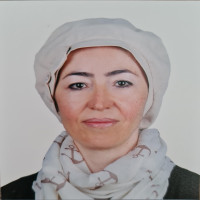
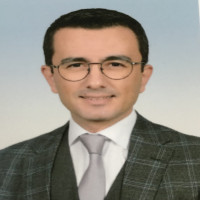








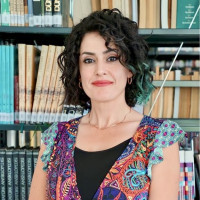

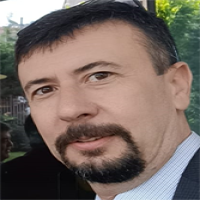
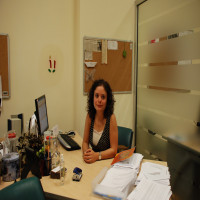
Aim & Scope
Mediterranean Journal of GWS - a periodical which includes interdisciplinary conceptual, empirical and methodological discussions - aims at developing dialogs among researchers from various disciplines and producing and popularizing current discussions in the field and making them accessible.
Mediterranean Journal of Gender and Women’s Studies (KTC) is published biannually in May and November as a peer-reviewed international electronic journal. It welcomes empirical studies and compilations prepared from the perspective of women and gender among all disciplines relating to women and gender issues particularly sociology, psychology, anthropology, communications, history, economics, education, business administration, law, health sciences and political science.
Author Guidelines
Mediterranean Journal of Gender and Women's Studies is dedicated to publishing unique interdisciplinary studies designed with women, gender and feminist perspectives. The content of the journal is created as the publications that complete the editorial process are published in full-text on-line on the internet which is subject to the General Public License.
The work to be submitted to the Mediterranean journal of Gender and Women's Studies should not have been published in any other media/elsewhere. In order for the submitted full texts to be taken into the evaluation process, it is necessary to include titles, English / Turkish abstracts, and references. The full text of the works and texts should consist of a maximum of 10,000 words, including abstracts, tables / figures, references and text content. It would be appropriate for the work to be monitored in the following order:
Title, Author Information (Name, Surname, the Organization where s/he works for, Contact Information), Abstract, Key Words, English Title, Abstract, Keywords, Introduction, Main Text, Method, Findings, Discussion, Conclusion, References, Writer's Note.
Articles must be prepared in Microsoft Word format. It is necessary to leave margins of 3 cm from the left, 2.5 cm from the top, and 2 cm from the right and bottom of the page structure.
The top and bottom headings of the article should be formatted in 12 point Times New Roman in bold. The heading of the work should be at the beginning of the abstract in Turkish and English on the first page of the full text. Headlines can be at most 40 words long. Regardless of the language used, the abstract must consist of at least 150 and at most 250 words. A min. of 3 and a max. of 5 keywords that indicate the quality of the article should be specified in the abstract.
In the articles that will apply to the GWS journal, there should be an extended summary of at least 500 words in English (Turkish for articles written in English) on the purpose, method, finding and result of the study. Care should be taken that the extended abstracts are not the same as the abstract in the second language of the article.
Except for the headings, the text content of the article should be in 12 point Times New Roman font. The text should be set to 1.5 cm line spacing and one space (2 cm) should be left between the paragraphs. The first lines of the paragraphs should be indented 1.27 cm from the left
Visual contents such as tables, figures, pictures and graphics should be included in the text.
The references page lists only the sources cited in the article. Every reference list entry should have at least one corresponding in-text citation in the American Psychological Association (APA) style. Further information on providing reference can be obtained from the APA Publication Manual.
Ethical Principles and Publication Policy
Click here for Copyright Transfer and the Conflict of Interest Forms.
On the behalf of all authors, the corresponding author:
- The article submitted is the original work of author(s);
- All authors participated in the work in an individual way and are prepared to take all kinds of the responsibilities for the work;
- In the submitted article, all authors are authorized to transfer all the financial rights of them related to the article to KTC Journal and make commitments in the form, therefore they will be responsible for all disputes that have occurred and that may occur;
- All authors have seen and approved the submitted article’s latest form.
- E-mail and street addresses of all authors have been entered into the Dergipark System correctly.
- The article has not been published and is not being submitted or considered for publication elsewhere;
- The text, illustrations, and any other materials included in the article do not infringe upon any existing copyright or other rights of anyone.
- S/he accepts and undertakes that his/her financial rights on the submitted article, in particular all public transmission rights including processing, reproduction, representation, printing, distribution, and online transmittal are transmitted to KTC Journal for unlimited use.
Notwithstanding the above, the author(s) retain(s) intellectual property rights such as:
- the right to use the entire article free of charge in their books or other works in the future,
- the right to reproduce the article for their own purposes provided the copies are not offered for sale.
- With that being said, author(s) has/have the right to reproduce, distribute the article by mail or electronically.
The use of any part of the article in another publication is permitted, provided that Mediterranean Journal of Gender and Women's Studies is specified as the publisher and referred to the Journal. While citing, Journal Name, Article Name, Name (Surname) of the Author (s), Volume No, Issue No and Year should be given.
The corresponding author also undertakes that “GWS Journal and Journal editors” are not responsible for the demands for rights or cases to be opened by the third parties due to the violation of right and all the responsibilities belong to him/her as a corresponding author. Besides, the author undertakes that there is not any crime element or any statement against law in the article, any kind of method or material which is against law is not used during the research process, and takes all necessary legal permissions and behave in accordance with the ethical rules about the work.
- Mediterranean Journal of Gender and Women’s Studies guarantees to preserve the highest standards of publication ethics and adheres to the following principles of Core Practices prepared in accordance with the guidelines and policies developed by the Committee on Publication Ethics (COPE) for journal editors.
- Submitted manuscripts should not have been previously published, or scheduled and/or evaluated to be published in another journal.
- Mediterranean Journal of Gender and Women’s Studies abides by the standards of COPE for publication ethics. Therefore, in cases of misconduct or violation of publication ethics, the journal will take the publication ethics flowcharts developed by COPE (https://publicationethics.org/resources/flowcharts) as a reference.
- In accordance with the double-blind peer review process, Mediterranean Journal of Gender and Women’s Studies conserves the anonymity of authors and reviewers when submitted articles are sent for review.
- It is the journal’s responsibility to maintain the confidentiality of any information regarding authors. However, such information may be shared in a possible enquiry in order to investigate any allegations of misconduct. Mediterranean Journal of Gender and Women’s Studies defines its principles regarding any allegations of misconduct in accordance with the guidelines prepared by the COPE and shares these principles with the stakeholders on its website.
- Text recycling, that is using the chapters of a single text in various publications of the same author without any reference, is unacceptable for Mediterranean Journal of Gender and Women’s Studies. In such cases, the journal acts according to the relevant guidelines determined by the COPE.
- Mediterranean Journal of Gender and Women’s Studies protects and supports freedom of expression under all circumstances. Moreover, the journal considers any racist, sexist or discriminatory content as hate speech and uses its right to refuse such contents without sending them for review.3
- In case of a conflict of interest regarding an article, the journal openly supports intellectual and ethical standards; and defines relevant ethical principles that authors, reviewers, editors and theme editors should comply with.
- Mediterranean Journal of Gender and Women’s Studies is sensitive and responsible for publishing edited contents, commentaries, apologies and refutations.
- Editors and publishers of the journal are obliged to follow legal advices in case that repetitions in an article, that is coinciding texts in two different publications, violate any intellectual property rights.
Policies concerning possible abuse claims
KTC Journal adopts the measures of COPE's "possible abuse" situations against abuse and misuse. Therefore, in the Publication Ethics Principles section publisher, editors, referers, editorial board and authors ' obligations throughout the pre-, in progress- and post- publication possible abuse situations are clearly defined in detail.
- The purpose of collaborating and making efforts to investigate in cases of suspected abuse is to provide benefits such as acting in a cooperative way with investigations/writers and/or institutions. In cases where the same work is sent to different publications, comparing different versions of the same works submitted to different journals while comparing the descriptions compiled from the authors and investigators for the submitted work is necessary.
- KTC Journal, considering the importance of confidentiality in the process of scientific publishing, shares information about the authors and referers only to prevent and respond to a suspicious misuse of research and to fulfill its obligation.
Upon any necessity, information is shared only with editors who are believed to have familiarity with the subject, and the shared information is limited solely to the fact-only content. - Editor and field editors commit to ensure the largest possible protection of communication confidentiality.
- Mediterranean Journal of Gender and Women’s Studies contemplates that possible conflicts of interest among its stakeholders could damage the publication ethics. Therefore, the journal defines the liabilities of all stakeholders in order to determine and prevent conflicts of interest.
Referee Responsibilities
- The referers evaluate the articles in terms of scientific content, regardless of their authors' ethnic origin, gender, religion, religious beliefs or political philosophy. In terms of referers; there should be no conflict of interest or competition related to or between researchers, authors or other related parties. Referee decisions must be objective.
- Referers must indicate the published related publications not cited by the author. They are obliged to inform the editor when all information about the submitted article is kept confidential and it notices the copyright infringement and plagiarism made by the author.
- If the referee thinks that the content of a submitted post is incompatible with his or her scientific field or accumulation, he/she must inform the editor and ask for forgiveness from the evaluation process. Click to access the PDF document "Referee Guide" prepared by COPE.
Editorial responsibilities
- Editors evaluate the articles from the in terms of scientific content, regardless of their authors ' ethnic origin, gender, gender preference, religion, religious beliefs or political philosophers. They provide a fair pair of double-blind peer-review processes for the publication of sent posts. They ensure that all information about the submitted article is kept confidential until publication.
- Editors are responsible for the content and total quality of the publication. They publish corrections as needed through the typesetting error pages.
- Editors should not allow any conflicts of interest or competition between authors, editors and referers. In KTC Journal, only the editor has full authority in the appointment of the referee and is responsible for the outcome decision on the publication of the articles.
Click to access the PDF document "general duties and responsibilities of editors" prepared by COPE.
Price Policy
The journal does not charge any submission fees or page charges.
Manuscripts to be submitted to the Mediterranean Journal of Women's Studies and Gender (KTC) must not have been previously published, included in the publication program, or have not entered the evaluation phase for publication in another journal. The copyright of the articles published in the Mediterranean Journal of Women's Studies and Gender is licensed under CC BY-NC 4.0. In accordance with the Creative Commons Attribution principles, it is allowed to share the works by citing the author and the Journal.
The author has to sign the Copyright Transfer Form and upload it to the Dergipark system when applying for an article to the KTC Journal.
Click here for the Copyright Transfer Form.
Indexes
Citation Indexes
Other Indexes
Journal Boards
Journal Board
